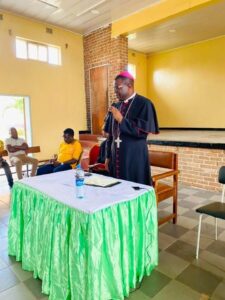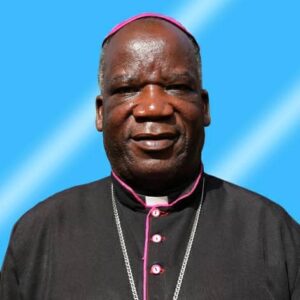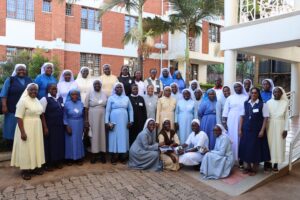SECAM: Cardinal Ambongo Advocates for a “Healthy” Decentralized Church
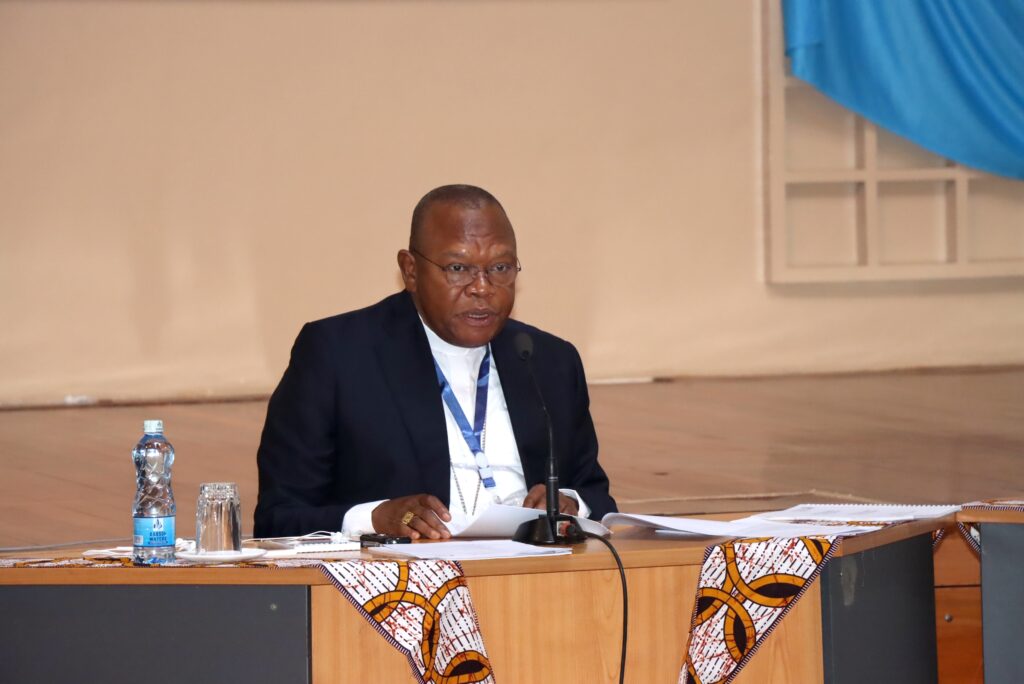
Cardinal Ambongo, SECAM President
Sr. Jecinter Antoinette Okoth, FSSA
President for the Symposium of Episcopal Conferences of Africa and Madagascar (SECAM) in his presentation during a seminar for members of SECAM and the Council of European Catholic Bishops’ Conferences (CCEE), has reminded the bishops of the significance of a “healthy” decentralization in the Church.
Addressing over 20 participants who attended the two-day seminar at Mariapolis Retreat Centre in Nairobi on 24th and 25th January, the Cardinal for Kinshasa Archdiocese in the Democratic Republic of the Congo (DRC) based his presentation on the document “Praedicate Evangelium” (Preach the Gospel) that was promulgated by Pope Francis on March 19, 2022.
The Praedicate Evangelium is an Apostolic Constitution that focuses on the restructuring of the Roman Curia and its service to the Church in the world. According to the Cardinal who is member of the Order of Friars Minor Capuchin (OFM Cap.), “the various statements of the cardinals during the 2013 pre-conclave and various developments and changes, initiated a reform of the Constitution to prepare the Church for the challenges of the 21st century,” hence the release of the document years later.
It is not the first time to review a Constitution in the Church. Cardinal Ambongo notes that the Apostolic Constitution “Pastor Bonus” (The Good Shepherd) which instituted several reforms in the process of running the central government of the Catholic Church, “was published over 30 years ago when Saint John Paul II saw the need to revise the Constitution of Saint Paul V.”
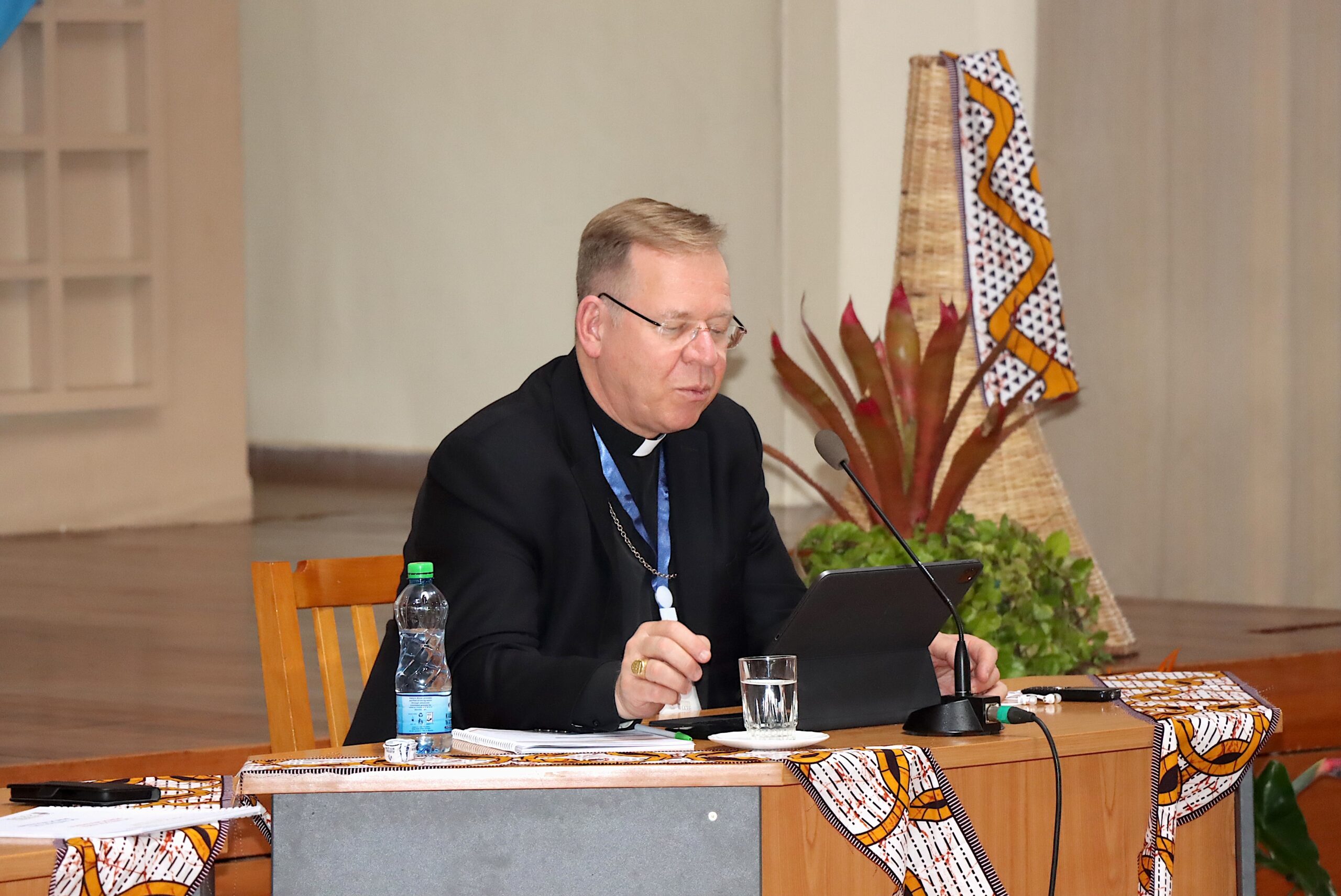
Speaking under the theme “Understanding the emerging synodal Church in the light of “Praedicate Evangelium,” in the African context, Archbishop Ambongo said, “The concept of “healthy decentralization” is an important starting point for us to gradually give an African face to our Church.”
The president of SECAM highlighted that the spirit and intentions of this new Constitution Praedicate Evangelium is important not only for “contextualization at the African level but also for fruitful collaboration between the Church of Africa and the Church of Europe.”
Since the message in the Apostolic Constitution Praedicate Evangelium revolves around the mission that the Lord Jesus Christ entrusted to his disciples and the people of God, “the Church is called to reform, to a “missionary conversion.”
Based on this mission, Cardinal Ambongo a member of the Vatican’s Council of Cardinals stressed on Wednesday, January 24, that the “reform of the Roman Curia (and thus of the Church) must also be seen in the context of missionary conversion.” That is, “the administrative work of the Curia must be carried out from the proclamation of the Gospel and missionary conversion.”
Emphasizing the spirit of synodality and journeying together as the document highlights, the Congolese Prelate stated that “The reform of the Curia must be understood from the perspective of the ecclesiology of communion which is about living the “new communion” in Jesus Christ.”
“Building this new communion gives the Church the “face of synodality”. This is the image or face of a Church where “the faithful, college of bishops and the bishop of Rome” walk together” one listening to the other, and all listening to the Holy Spirit,” the Cardinal said and continued, “The reform of the Church and the Curia must be an image of the communion of Jesus with the Apostles and which continued in the first community of Jerusalem after Pentecost under the guidance of the Holy Spirit.”
He highlighted some of the principles for the service of the Curia in the new Constitution saying “The Curia must serve the Pope and the bishops. This paradigm shift means that the conversion is fundamental to the reform of the Curia, and this change cannot be relativized by any interpretation.”
The seminar that was themed Synodality: Africa and Europe walking together, brought together prelates from Africa and Europe who have journeyed together for the past 20 years to deliberate on how synodality is shaping the Churches in Africa and Europe.
